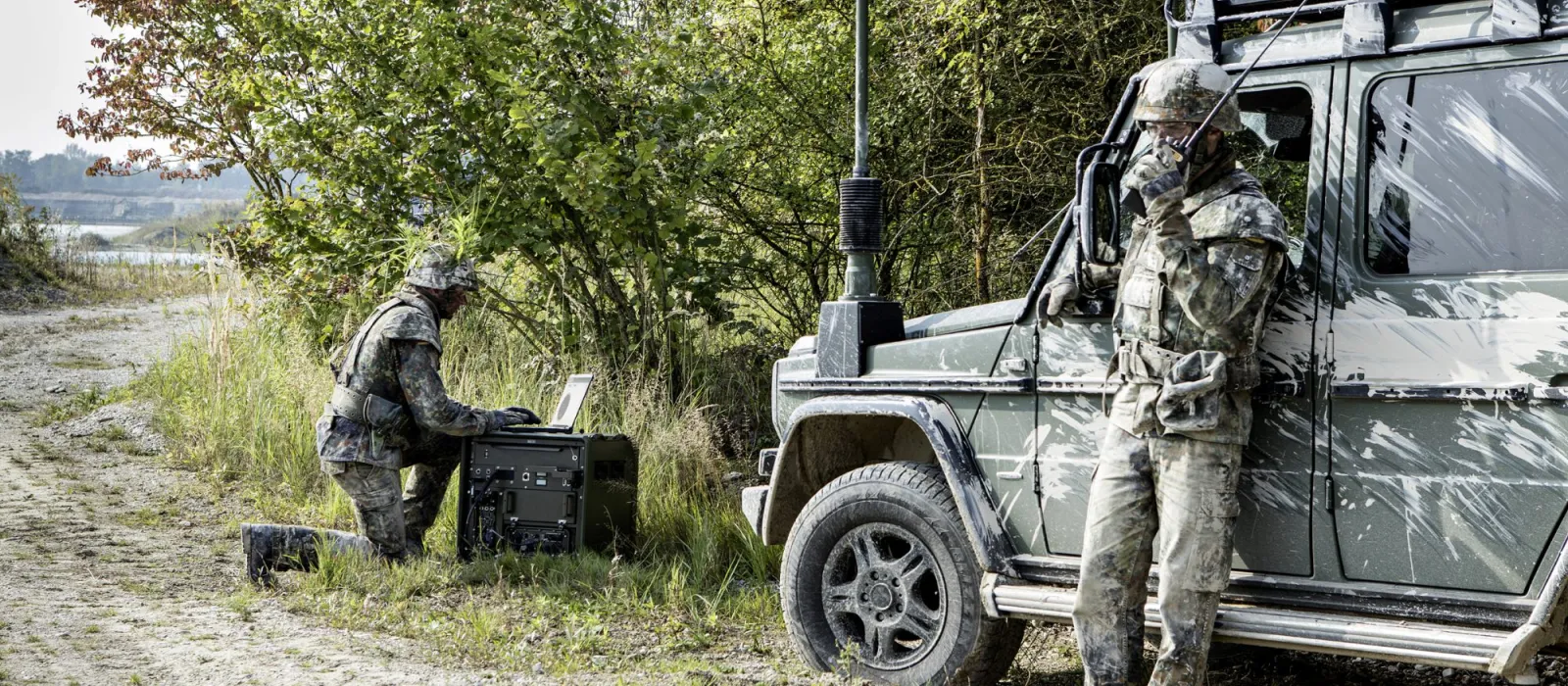MIL-STD-1757 Lightning Strike Resistance Testing
The MIL-STD-1757 standard is a critical part of ensuring that military equipment and systems can withstand lightning strikes without failure. This testing procedure evaluates the resilience of electrical, electronic, and electromechanical components against the destructive forces of lightning.
Lightning strikes can cause significant damage to equipment due to high voltage surges and intense electromagnetic fields. The MIL-STD-1757 test simulates these conditions by subjecting specimens to controlled lightning strike pulses designed to mimic real-world scenarios. This testing is essential for the following reasons:
- Ensures compliance with military specifications
- Provides a standardized method for evaluating equipment durability and reliability
- Reduces the risk of operational failures in harsh environments
- Saves time and resources by identifying potential issues early in development
- Promotes interoperability between different systems and platforms
- Meets international standards, enhancing export capabilities
The test involves subjecting a specimen to multiple lightning strikes of varying amplitudes and durations. The equipment must demonstrate the ability to maintain its operational integrity under these conditions. This includes checks on insulation integrity, circuit continuity, and overall functionality.
Preparation for this test is crucial. Specimens are typically prepared by ensuring they meet all design criteria specified in MIL-STD-1757. This may include specific grounding requirements, shielded enclosures, and other modifications to enhance lightning strike resistance.
The testing process itself involves several steps. Initially, the specimen is connected to a lightning simulator capable of generating high-voltage pulses that mimic actual lightning strikes. The simulator applies these pulses in accordance with the prescribed protocol detailed in MIL-STD-1757. Following each pulse application, technicians monitor for any signs of failure or degradation.
After testing, thorough analysis is conducted to determine compliance with the standard. This includes visual inspections, electrical tests, and performance assessments. Compliance is determined based on whether the equipment can withstand the specified number of strikes without significant damage.
The importance of this test cannot be overstated in ensuring that military-grade equipment functions reliably under extreme conditions. By adhering to MIL-STD-1757, manufacturers can build trust with military and defense organizations globally, knowing their products meet stringent quality standards. This trust is essential for maintaining long-term contracts and partnerships.
In conclusion, MIL-STD-1757 Lightning Strike Resistance Testing is a cornerstone of ensuring that military equipment is robust enough to withstand the harsh realities of operational environments. It is a rigorous process that demands precision and attention to detail but ultimately guarantees higher reliability and safety.
Eurolab Advantages
At Eurolab, we specialize in providing comprehensive testing services tailored to meet the unique needs of the military sector. Our expertise in MIL-STD-1757 Lightning Strike Resistance Testing ensures that our clients receive accurate and reliable results every time.
- State-of-the-art facilities: Equipped with cutting-edge lightning simulators capable of replicating real-world conditions
- Experienced staff: Our technicians are trained to the highest standards, ensuring consistent quality in testing procedures
- Detailed reports: Comprehensive documentation that provides a clear understanding of test outcomes and recommendations for improvement
- Rapid turnaround times: We understand the importance of timely results and strive to deliver within agreed-upon deadlines
- Comprehensive support: From initial consultation to post-test analysis, we offer full-service assistance throughout the testing process
- ISO/IEC 17025 accreditation: Ensuring that our laboratory meets international quality standards for technical services and scientific research
With Eurolab, you can rely on a partner committed to excellence in every aspect of your testing needs. Our commitment to precision and reliability sets us apart as the trusted choice for MIL-STD-1757 Lightning Strike Resistance Testing.
Why Choose This Test
The MIL-STD-1757 Lightning Strike Resistance Testing offers numerous advantages that make it an indispensable part of any comprehensive quality assurance program. Ensuring compliance with this standard not only enhances the reliability and safety of your equipment but also opens doors to international markets.
- Compliance: Demonstrates adherence to military specifications, which is crucial for maintaining long-term contracts
- Reliability: Guarantees that your equipment can withstand harsh environmental conditions without failure
- Safety: Reduces the risk of operational accidents due to equipment malfunction in extreme weather conditions
- Risk Management: Identifies potential issues early, allowing for necessary design modifications before production begins
- Interoperability: Ensures compatibility with other systems and platforms within the military network
- Competitive Advantage: Differentiates your products in a crowded market by showcasing robust quality standards
- Reputation: Builds trust with military and defense organizations, fostering strong partnerships
- Cost Efficiency: Prevents costly repairs and replacements by identifying issues early
In summary, choosing MIL-STD-1757 Lightning Strike Resistance Testing is a strategic decision that supports the overall mission of ensuring equipment reliability and safety in military operations.
International Acceptance and Recognition
MIL-STD-1757 Lightning Strike Resistance Testing is recognized internationally for its stringent requirements and comprehensive approach to evaluating lightning strike resistance. This standard is widely accepted by various regulatory bodies and military organizations globally, ensuring that equipment meets the highest standards of reliability and safety.
Many countries have adopted MIL-STD-1757 as a benchmark for their own testing protocols, recognizing its effectiveness in providing consistent and reliable results. The United States Department of Defense (DoD) mandates adherence to this standard for all military-grade equipment, emphasizing its importance in the defense sector.
The international acceptance of MIL-STD-1757 enhances export capabilities by ensuring that products meet global standards. This recognition fosters trust among international partners and customers, further solidifying the reputation of compliant manufacturers.
Moreover, the standard's widespread adoption promotes interoperability within military networks, allowing for seamless integration of different systems and platforms. This is particularly important in modern warfare, where coordination between various units is crucial.
In conclusion, the international recognition of MIL-STD-1757 underscores its significance in ensuring that equipment meets rigorous quality standards. By adhering to this standard, manufacturers can position themselves as leaders in reliability and safety, thereby gaining a competitive edge in both domestic and international markets.





